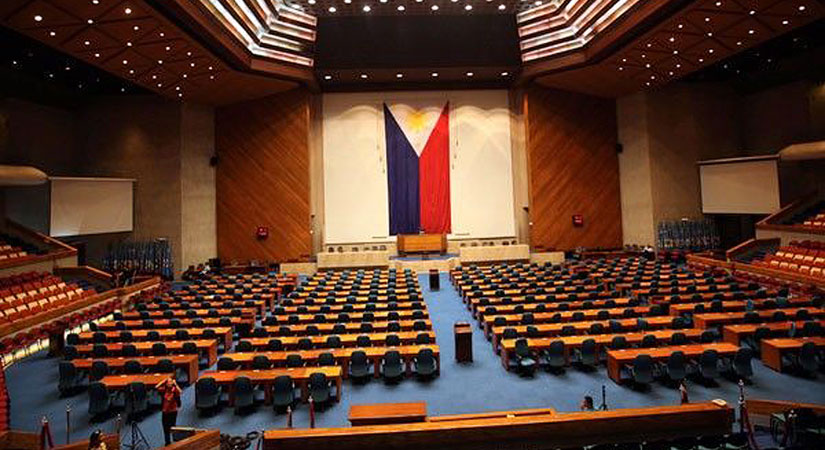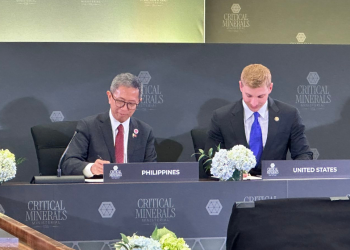The House Committee on Appropriations approved an unnumbered substitute bill that aims to establish a fiscal regime for the mining industry in the Philippines.
According to a BusinessWorld report, the bill, which consolidated House Bills (HB) 288, 560, 1687, 2557, 4541, 4874, 5022, and 5253, called for large-scale metals miners to pay for a royalty equivalent to three percent of their total gross output.
The bill also proposed to create a National Resource Trust Fund which aims to collect revenues from mining operations and “extend their benefits to future generations” through educational programs, technological research programs, health services, and disaster risk reduction management initiatives.
The Trust Fund will be established from the annual payment of mining contractors to the Bureau of Internal Revenue (BIR) of an additional two percent based on gross output for large-scale metals miners.
Failure to comply with these obligations will warrant “immediate suspension or closure of the mining activities” of the mining concession holder. Moreover, an auction system for concessions, which will be established by the Mines and Geosciences Bureau (MGB), was also proposed.
Amidst these conditions, small-scale miners were said to be exempted from the said fiscal regime.
“This will minimize awarding of mineral agreements based on asymmetrical information, first-come-first-served systems, and patronage politics. Moreover, it shall promote investments in mineral-rich areas through an online portal open to the public,” Albay Representative Jose Maria Clemente S. Salceda was quoted as saying in the report.
By requiring full public disclosure in the mining industry, the measure also institutionalizes the Philippines’ participation in the Extractive Industries Transparency Initiative (EITI).
situs togel
sydney night
bento4d
situs slot
bento4d
bento4d
bento4d
slot resmi
bento4d
situs toto
bento4d
bento4d
guiadenoivos.saojosedojardimeuropa.com.br
toto slot
link-bento4d.com
bento4d
thepubtheatre
situs toto
situs gacor
mst.akwaibomstate.gov.ng
situs toto
situs slot
bento4d
world.skanray.com
situs toto
situs toto
situs toto
situs slot
mgpo.org
toto togel
fopsl.org/donate/
pwip.com.pl/menu/
bento4d
situs slot
form.eng.ku.ac.th
situs toto
www.leon.uml.edu.ni
toto
bento4d
beyond.globalpranichealing.com/about/
bento4d
onhc.ca
situs gacor
slot gacor
situs toto
culturasbo.com
situs slot gacor
pafibengkuluutarakab.org
situs toto
situs toto
actkm.org
theantiguaguide.com/public
situs toto
bento4d
slot resmi
toto slot
situs togel
bento4d
desaparhorboan.id
momusi.org
thesolderingstation.com
pbumc.net
blog.actkm.org
situs gacor
situs slot
toto slot
situs toto
situs slot
slot online
www.promhotelsriccione.it
situs toto
www.blackbrooks.co.uk/pricing
situs slot
situs toto
www.telegramitalia.it
clinicaalemanaosorno.cl
situs toto
fcvfc.org
togel resmi
situs gacor
situs slot gacor
situs slot
link slot
ejournal.akbidbungabangsaaceh.ac.id
slot resmi
www.bestforinteriors.nl
situs toto
maplweb.org
link slot
situs gacor
situs slot
accesss.net
toto
situs toto
bento4d
nagaad.org/contact/
situs toto
fet.uet.vnu.edu.vn
toto slot
situs slot
toto slot
situs toto
toto slot
situs gacor
situs gacor
link slot
revista.undime.org.br
idisurabaya.org
link slot
link gacor
bento4d
situs slot
link slot
situs slot
ensa.uit.ac.ma
situs slot
toto
situs gacor
slot gacor
toto togel
corporateofficeheadquarters.org
situs toto
situs gacor
compostbaladi.com
situs toto
situs slot gacor
link slot
situs toto
situs slot gacor
situs toto
situs toto
situs slot
situs gacor
slot gacor
situs gacor
slot gacor hari ini
slot thailand
link slot
situs toto
login.scottishrite.org
link slot
situs toto
toto slot
situs toto
situs toto
situs toto
situs toto
situs toto
situs toto
situs toto
situs toto
situs toto
situs toto
situs toto
situs toto
situs toto
situs toto
slot gacor
slot gacor
situs toto
bento4d
toto slot
toto
toto slot
situs slot gacor
situs slot
link slot
bento4d
laines-paysannes.fr
situs slot
toto slot
toto
situs slot gacor
cabinet.edostate.gov.ng
situs toto
toto
situs gacor
situs toto
faller.com
situs slot
situs gacor
situs toto
nasasps.org
toto
link gacor
toto slot
toto
situs gacor
situs toto
toto
link slot
situs toto
bento4d
situs gacor














